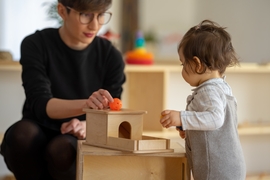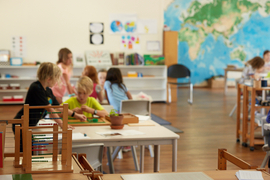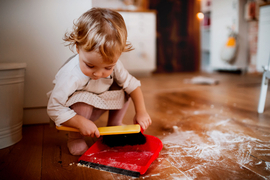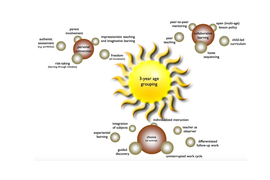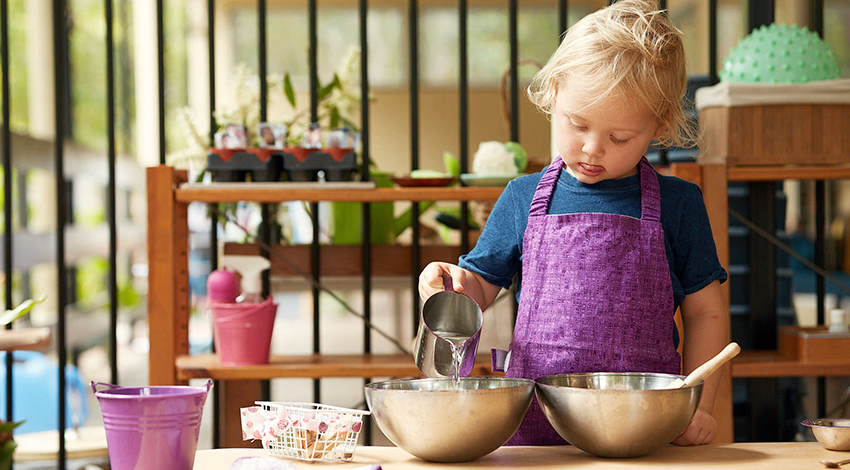
Consistency
Very young children have a strong tendency towards order. An ordered and consistent environment, including people, enables young children to orientate themselves in the world and provides them with a sense of security. It is our role as the adult to provide and initially maintain this order for the child, when they are too young to maintain it by themselves. Order in the external environment is taken in by the child’s absorbent mind and is used to create internal order in their thinking. The child requires order in their environment to the age of 6 years, with the sensitivity peaking at 18 months through to 2½-3 years.
Independence
Children under the age of three strive for functional independence - the knowledge and skills involved in looking after themselves, their belongings and their home. Functional independence is achieved in stages and initially tasks are accomplished in collaboration with the adult.
- We start by modeling the behaviour we are looking for from the child. The child will effortlessly absorb our actions and words due to the unique capacity of the mind at this stage of development e.g. when we model putting work away once we have finished, the child will absorb this.
- When the child has sufficient motor skill we invite them to collaborate with us. We break down the steps of activity into simple movements which the child can achieve. We give the child a choice e.g. ‘Are you going to put the train track in the basket or the trains in the basket?’ We use affirmative statements rather than requests, ‘You can pack your blocks away’, rather than ‘Can you pack your blocks away?’
- By two years of age we can begin to expect the child to be able to achieve many tasks independently. A sample list is provided below:
CARE OF SELF:
- Getting out of bed and into bed
- Choosing work and packing work away
- Choosing what to wear
- Getting dressed
- Getting a drink of water
- Brushing teeth
- Brushing hair
- Wiping the nose
- Washing hands
- Washing the face
- Undressing
CARE OF THE HOME:
- Setting their places at the table
- Washing dishes
- Drying dishes
- Wiping the table
- Sweeping and mopping
- Putting clothes in the laundry basket
FOOD PREPARATION:
- Cutting fruit
- Spreading crackers
- Slicing boiled egg
- Grating cheese
To support this we try to ensure that whatever the child needs in order to complete the task is readily accessible, safe and pleasing to use. Initially the child will do the activity in order to imitate the adult or for the pleasure of movement, rather than for its purpose e.g. washing the dishes. From age 4 they will want to do these activities for their purpose.
If the activity offers the possibility of repetition we can further support the child’s developing knowledge of how to complete the task and aid in the development of their concentration.
